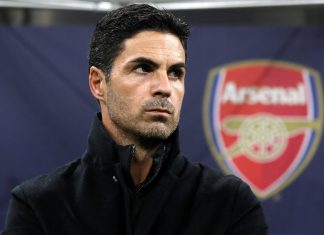The impact he has had on English football and the global game more generally, seen 10 years later, is astounding.
What is often forgotten about the Russian oligarch is that he is one of the very few billionaires who is involved in football from a genuine affection for the game. Abramovich loves the sport, and shuns the limelight – for him this has nothing to do with publicity. His lack of a public profile means we are left guessing as to the reasons behind most of his decisions, but they have had a profound impact on millions.
When Abramovich arrived, Manchester United were champions, just as they are now, but it was arguably Arsenal who were on top. They’d won the 2002 title, scoring in every single game of the season, without losing an away match, and were top for most of the season ending 2003. In 2004, Abramovich’s first year, the Gunners won the league unbeaten.
In came Jose Mourinho, and Chelsea splurged cash around like it was going out of fashion. Petr Cech, Frank Lampard, Arjen Robben and other key players had been brought in under Claudio Ranieri, who had promoted John Terry to the first team and made him captain. It is forgotten too quickly that it was Ranieri who laid the building blocks for Chelsea’s success – that famous spine of Cech, Terry and Lampard, which was put together by him. Mourinho, benefiting from his predecessor’s foresight, came in and duly put the cherry on top of the cake, signing Michael Essien, Ricardo Carvalho, Paulo Ferreira and Didier Drogba. Overnight Chelsea were transformed into a machine, pulverising everything in their path.
The impact of Abramovich though was to artificially inflate the value of players and their wage packets. Suddenly Chelsea could blow anyone out of the water financially, so players demanded more money, knowing what they could get at Stamford Bridge. Clubs were forced to pay more to land the top players, as Chelsea were willing to pay that much. Ultimately the value of something is what someone is willing to pay for it, and when you have a spendthrift billionaire oligarch in town, they are willing to pay a lot.
That has had a knock on impact on various parts of English football. For one thing, fans are now priced out of the game as never before. To pay for wages, ticket receipts have to go up, and that often means increasing prices. Abramovich is as much to blame as anyone for that. To keep pace with Chelsea’s spending, as many do with Manchester City now, it has become imperative to squeeze paying fans for every penny possible. That is one major negative legacy of Abramovich.
The other is the fact that he has created the concept of a club being handed success to them on a silver plate. Chelsea did nothing to earn the titles handed to them by Abramovich’s largesse. It was the equivalent of a rich man paying for his son’s education, buying him into the top university and then paying off the recruitment chief at a company to hire them afterwards. Of course no one is suggesting Abramovich has bought anyone off, but the effect of his spending is the same. It has bought success for a team who had done nothing to earn it off their own back.
The inflation in football precipitated by Abramovich has led to a squeeze on English players’ chances of getting into first teams. With so much money on offer, the Premier League can attract talents from across the world. Whether you’re a top team like a Liverpool or Manchester United bringing over stars like Javier Hernandez and Luis Suarez, or a smaller team like Stoke and West Ham buying Alou Diarra or Brek Shea, the Premier League is the place most want to be financially. And that means up and coming youngsters will struggle to get game time unless they’re really, really good. And therefore the largesse of Abramovich and co. is further limiting playing time for English youngsters.
So English football may think it has a lot to be thankful for 10 years after Abramovich took over Chelsea, and certainly the club do, but there have also been some major negatives to the Russian’s reign.







